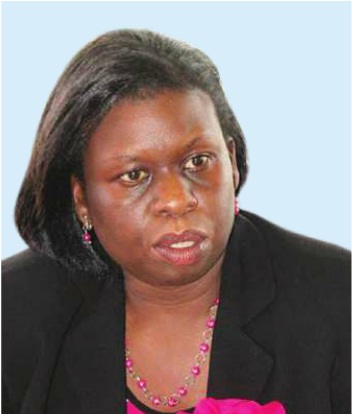Report exposes rich professionals, government officials not paying income tax. URA now plans to tax better, not more.

Do you often transfer large sums of money in banks, drive a posh car, live in a palace, buy land often, travel abroad often and travel either business or First Class? Are you a high earning lawyer, doctor, or accountant, government official, business owner, or professional? If the answer is yes, then you could finally become a high value target of the Uganda Revenue Authority (URA).
As the tax body scrambles to increase revenue collection, The Independent has learnt that it is under pressure to adopt a strategy proposed by consultants to “tax better, not more”.
Under this arrangement, instead of piling more taxes on already compliant taxpayers; who are mainly employees of a few businesses, URA should soon start going after the income of so-called High Net worth Individuals (HNWIs).
Members of Parliament, top government officials who earn fat allowances, run lucrative side-businesses (schools, media houses, hotels, farms) and earn money from unclear sources and university lecturers who earn big per diems are specifically mentioned.
Under the proposal, contained in a report produced early this year, titled “Boosting Revenue Collection through Taxing High Net Worth Individuals: The Case of Uganda” even if URA does not have a figure of how much money an individual earns, it will now track what they buy or consumption to make “presumptive tax assessments”. The strategy, it is hoped, will then force the rich individual to declare their actual income for taxation.
The report is based on a study undertaken by URAwith the help of the International Centre for Tax and Development (ICTD), a UK-based research centre that advocates for effective tax regimes. Although it commissioned the study, URA is being put on the spot for failing to tax the incomes of the rich.
The report says URA fails or fears to tax the rich because they possess immense power due to their “connections in government”.
These include individuals the tax body categorises as the ‘VIP Group’ – either powerful government including the president, vice president, Speaker of parliament , and even the Inspector General of Police, or influential members of society including heads of government departments and authorities, head of political and business organisations, religious leaders, and outspoken journalists etc.
Some of these might not be rich yet, but URA is to keep a watch on them because of their potential to be rich and their ability to influence others.
Some of these officials, especially civil servants, only pay income taxes on their small salaries. Although URA in 2012 introduced a special team to pursue taxes from the rich under the so-called Large Taxpayers’ Office (LTO), it has largely failed to tax individuals’ incomes and concentrates only on companies. As a result, individuals seeking to hide their big money place it on personal accounts rather than company accounts. The experts are now proposing that URA goes after the personal accounts of the rich.
Uganda’s tax collection has remained low for decades. According to the standard measure of this, the tax-to-GDP ratio in Uganda has hovered between 12-13% despite various amendments to tax laws and reforms in tax administration. The tax-GDP ratio is between 30 and 45% in developed countries. Uganda’s low tax collection is blamed on the high prevalence of the informal sector in the economy, the use of cash in most transactions, and URA’s concentration on taxing corporate entities at the expense of individuals.
Now, URA Assistant Manager for Public and Corporate Affairs Sarah Banage told The Independent that the tax body is also tracking its mobile money platform, Payway, and other mobile apps for tax purposes of individuals.
“URA has introduced various sectors to keep track of an ever growing tax base,” she said. However, experts warn that as URA targets consumer patterns, it has to strike a cautious balancing act so as not to create a situation of witch hunting which could backfire and result in more sophisticated ways of evading tax.
 The Independent Uganda: You get the Truth we Pay the Price
The Independent Uganda: You get the Truth we Pay the Price




What change is going to make? you are all working for Rwanda Project!!
URA the solution is simple. Make a TIN mandatory for all business transactions and you will see the results.
“He says the “MPs have replaced government by paying school fees, taking care of the poor and funding various other activities in their constituencies”……also other ugandans pay school fees ,take care of poor relations,funding various activities in their communities like weddings,…and still have to pay their taxes yet earn significantly less than the mps…